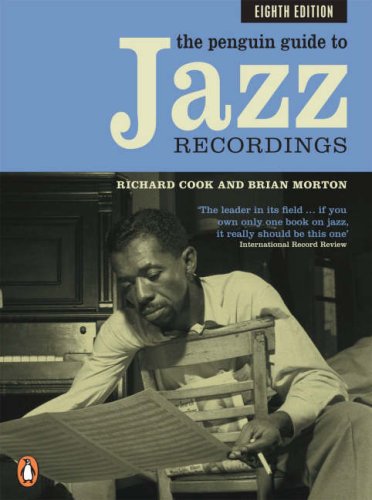
The Penguin Guide To Jazz Recordings ,
Eighth Edition
Richard Cook and Brian Morton
Penguin Books
2006
Pandelis Karayorgis
PIANO
______________________________________________________________________
Raised in Greece he studied at the New England Conservatory and under Paul Bley and plays a raggedly abstract style of piano. Has worked with viol(in)ist Mat Maneri.
______________________________________________________________________
*** Lift & Poise Leo Lab 041 Karayorgis; Joe Maneri (cl); Mat Maneri (vn); John Lockwood (b). 12/96, 1/97
**** Heart & Sack Leo Lab 048 Karayorgis; Nate McBride (b); Randy Peterson (d). 4/98.
Karayorgis has made several albums on Leo Records with Maneri. Lift & Poise is probably the best of them, with the bonus of Joe Maneri (clarinet on two tracks) and John Lockwood on the strength. There are 12 tracks, divided into solo, duo and trio pieces, exploring a range of sonorities and improvising languages, ranging from the quasi ‑ classical to the free ‑ form and brutalist.
Heart & Sack is much more obviously a jazz album and Pandelis's Monk influence comes across strongly. He does a wonderful cover of Dolphy's bluesy 'Miss Ann', Ellington's 'Frustration' and Ken McIntyre's rarely (if ever) covered 'Lautir'. That's enough to lend it interest, but the playing is richly evocative and never predictable, even if McBride and Peterson occasionally lapse into free ‑ jazz argot during some of Karayorgis's More abstract passages.
**(*) Let It Cadence 1115 As above; omit Peterson 2 ‑ 5/99.
***(*) Blood Ballad Leo LRCD 325 As above, except add Randy Peterson (d). 8/01.
The duo date with McBride is actually rather dull, though there are moments of genuine illumination as well, and it's the reconvened trio that captures the attention on Blood Ballad. It's a tighter and more organized album than the first, and there are no reference points apart from the closing version of Coltrane's 'One Up, One Down', which might be taken from a Marilyn Crispell session were it not so punchy and Monkian. The opening sequence of 'In The Cracks Of Four' and 'Blood Ballad' probably represents Pandelis's best moments on record and a very good place to start exploring his music.
*** No Such Thing Boxholder BXH 104 As above, except add Ken Vandemark (reeds); omit Peterson. 01.
*** Disambiguation Leo LR CD 334 Karayorgis; Tony Malaby (ts); Mat Maneri (vn); Michael Formanek (b); Randy Peterson (d). 1/02
The trio with Vandermark will appeal mostly to fans of the reedman, though Karayorgis's suppressed Cecil Taylor influence moves to the fore briefly. Best to move straight on to Disambiguation , which reunites the pianist with Maneri in a scratch line ‑ up that brings out the best in both of them. Again, Pandelis's Monk influence is very evident, and he swings more easily and relaxedly than on most of his previous records. The long 'Three Plus Three' (which might be a lost Monk score) and the title ‑ piece are the most effective cuts.
**** Seventeen Pieces Leo CD LR 417 Karayorgis (p solo). 4/04
Even despite the foregoing, one still doesn't think of Karayorgis primarily as an interpreter of repertory material. Yet its his clever reworking of material by Monk and Dolphy again, and even Sun Ra, that catches the attention on this beautifully paced solo set. The readings of 'Ugly Beauty' and 'Criss Cross' are hard to fault on any level and Dolphy's 'Gazelloni' is actually quite revelatory in this transcription, a study ‑ piece for anyone interested in the great saxophonist as a composer. The real surprise and delight, though, is Sun Ra's 'Deep Bronze' a slightly surreal work in its original incarnation, delivered almost prettily here. Whether the Paul Bley influence is still evident, we'll leave up to you; by this stage, though, Karayorgis has developed a powerful piano language of his own and this is its definitive statement to date.